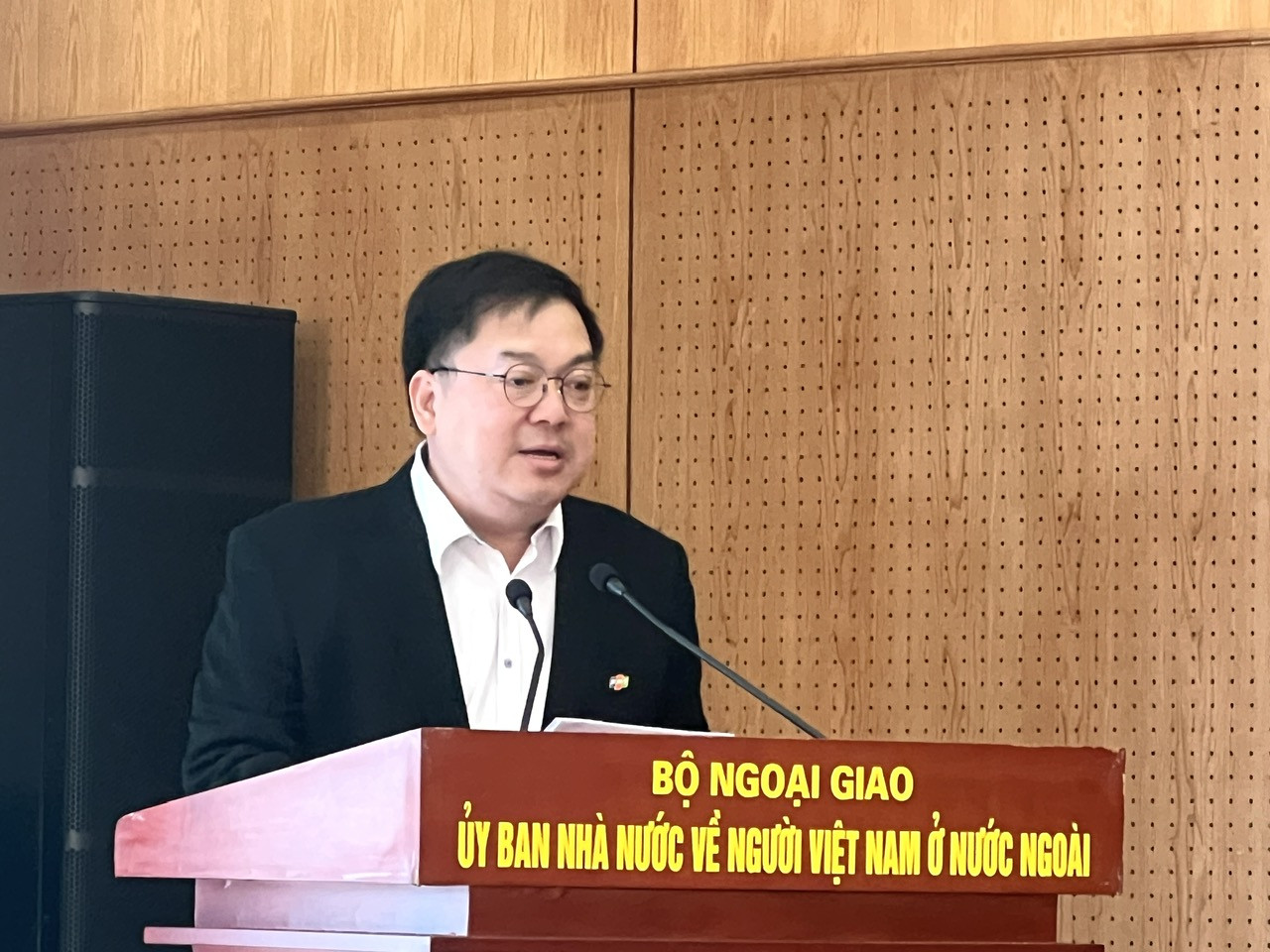
Mr. Hoang Nam Tien, Vice Chairman of the University Council, FPT University. Photo: Binh Minh
With a thirst for talent, FPT Group's leaders have sought many ways to "recruit talented people". Because FPT leaders clearly understand the role of leading Vietnamese experts abroad. For example, in the US, after FPT leaders approached Mr. Phuong Tram, former CIO of Dupont (the world's leading chemical corporation), meeting other businesses became much easier. In early December, at the University of Tokyo, Mr. Tien was extremely surprised and proud to meet a series of Vietnamese professors and doctors who are leading leading projects in Japan. For example, projects related to superconductors used for quantum computers, projects to replace silicon in semiconductors, etc. Such large resources have not yet been effectively exploited by the Vietnamese Government, ministries, sectors and enterprises. Responding to Mr. Tien's question about "whether they intend to return to Vietnam to live", someone shared: "The GDP here is 15-20 times larger than Vietnam's, our income is far superior to any preferential treatment policy in Vietnam. We can endure hardship, but the working environment in Vietnam is not suitable. We have also returned to Vietnam many times, and were treated very carefully, but there were no good or difficult enough problems." Vietnamese experts and intellectuals in the US, Japan, Germany, etc. are often exposed to the pinnacle of technology. Leading scientists are willing to endure hardship, receive low salaries, but must do good and difficult problems. Contributing to challenging projects is also a source of pride for them. When Mr. Tien talks to such leading intellectuals, even though they are citizens of other countries, they always remember that they are Vietnamese. When it comes to the responsibilities and missions of Vietnamese intellectuals to the country, they do not worry about "what we can get back home" or what kind of treatment they need, but only ask "What problems do the State, ministries, branches, and localities have for us to solve, not just visit a few places and give a few speeches". "FPT leaders have put a lot of effort into visiting research institutes, corporations, and large enterprises around the world, finding every way to invite leading Vietnamese experts and intellectuals to cooperate. Our company has also taken care of connecting with the "elite" Vietnamese team abroad. But that is not enough. At the national level, there needs to be a state organization to do this", Mr. Tien commented. The leader of FPT University proposed that the State Committee for Overseas Vietnamese - Ministry of Foreign Affairs act as a bridge, promoting the role of "midwife". For each trip of the Party and State leaders to leading countries such as the US, Germany, Japan, etc., the Ministry of Foreign Affairs should proactively invite all the dignitaries and talents in the host country to attend the meeting, share information about what the country is doing, wants to do, and wants their support. "Let's raise the "responsibility" and "mission" of overseas Vietnamese intellectuals. With the spirit of "'The rise and fall of the nation, the responsibility of every man", they will be ready to participate", Mr. Tien emphasized. There will be a database of overseas Vietnamese intellectuals and experts "Although there may be differences in perspective and political views, every overseas Vietnamese person has the mindset of being Vietnamese, ready to support the country, no matter how little or much", Mr. David Nguyen, Chairman of the Business Council of the Vietnam - Australia Innovation Network, one of the experts participating in the Global Startup Advisory Network for many years, expressed. Last October, the Vietnam-Australia Innovation Network supported a delegation from the Danang Innovation and Startup Support Board to visit Australia and work with universities and research institutes on semiconductors and AI. One Australian university alone has about 400 labs on quantum computing, semiconductors, AI, etc. And in November, a delegation of Australian professors was brought to Danang to organize a technology transfer workshop for startups in this locality. “The international mentor system can support by leveraging the resources of host countries to create conditions for Vietnamese startups in the host country as well as Vietnamese startups to go abroad. Vietnamese startups should strengthen their connections with Vietnamese startups in other markets to better develop their technology and solutions when reaching out to the international market,” said Mr. David Nguyen. Mr. Pham Hong Quat, Director of the Department of Market Development and Science and Technology Enterprises, noted that not many Vietnamese startups have connected with overseas Vietnamese to affirm their position in the technology field. China, India, Singapore, South Korea, etc. are doing this very well, becoming very developed models. “Every year, the amount of remittances sent to Vietnam is a lot, but there are not many investment projects for startups. We are discussing many things such as green growth, semiconductors, AI chips, etc., but in reality, many overseas Vietnamese do not grasp the specific situation in the country at present as well as the desire to develop in the future. Yesterday, I visited some educational institutions in Germany, there are many Vietnamese AI professors. They want to contribute to Vietnam, but it must be specific addresses, projects, solving specific challenges, not just raising issues,” Mr. Quat added.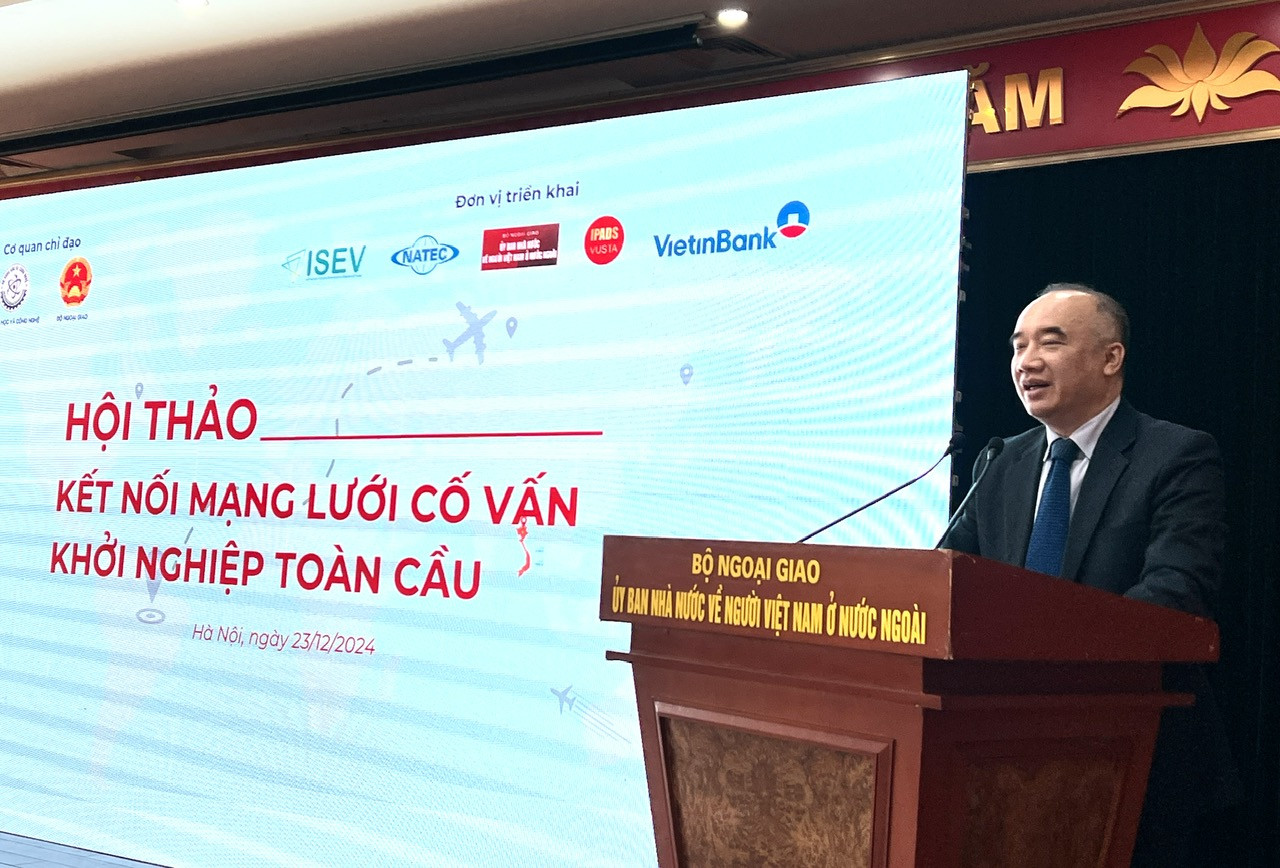
Mr. Nguyen Manh Dong, Deputy Chairman of the State Committee for Overseas Vietnamese. Photo: Binh Minh
Mr. Nguyen Manh Dong, Vice Chairman of the State Committee for Overseas Vietnamese, said: The Vietnamese community abroad currently has about 6 million people, in 130 countries, and is getting younger and younger. For example, the Vietnamese community in Japan has over 600,000 people living, studying and working. Previously, Vietnamese businesses abroad mainly operated in the service sector, but now they have expanded their operations to many new industries such as digital technology, green technology, etc. According to Mr. Dong, in recent times, we have promoted the trend of association, forming innovation networks of Vietnamese people abroad in Germany, Australia, Japan, Korea, Taiwan (China), etc., turning potential into real opportunities, connecting the knowledge source of Vietnamese experts abroad with innovative startups in Vietnam, bringing common benefits to all parties, for the development of the country and the community. Recently, a number of Vietnamese intellectuals around the world have built and operated the VietSearch platform, with about 10,000 data on Vietnamese experts and intellectuals abroad. However, in the coming time, it is necessary to strengthen and further diversify the forms of connecting networks of Vietnamese experts at home and abroad. "We will promote the formation of a database of Vietnamese experts, intellectuals, and businesses abroad, continuously updating and connecting data between domestic and foreign countries so that Vietnamese organizations and businesses can access it when needed," Mr. Dong added.Vietnamnet.vn
Source: https://vietnamnet.vn/tri-thuc-viet-kieu-muon-co-bai-toan-du-hay-du-kho-de-cong-hien-cho-dat-nuoc-2355628.html

![[Photo] Prime Minister Pham Minh Chinh receives Swedish Minister of International Development Cooperation and Foreign Trade](https://vphoto.vietnam.vn/thumb/1200x675/vietnam/resource/IMAGE/2025/5/12/ae50d0bb57584fd1bbe1cd77d9ad6d97)

![[Photo] Prime Minister Pham Minh Chinh starts construction of vital highway through Thai Binh and Nam Dinh](https://vphoto.vietnam.vn/thumb/1200x675/vietnam/resource/IMAGE/2025/5/12/52d98584ccea4c8dbf7c7f7484433af5)


![[Photo] Prime Minister Pham Minh Chinh works with the Standing Committee of Thai Binh Provincial Party Committee](https://vphoto.vietnam.vn/thumb/1200x675/vietnam/resource/IMAGE/2025/5/12/f514ab990c544e05a446f77bba59c7d1)




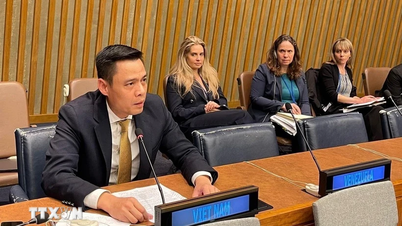

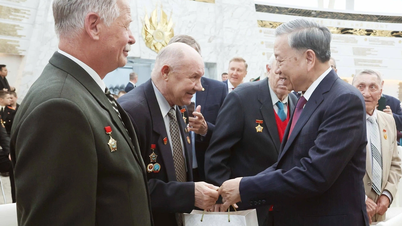

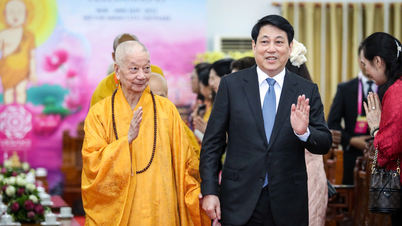

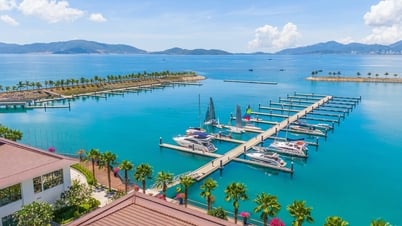



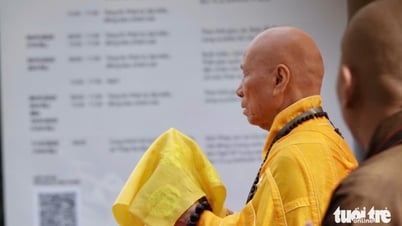
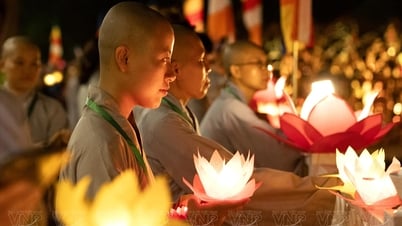
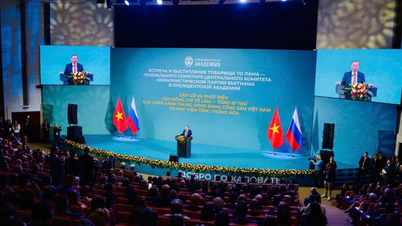





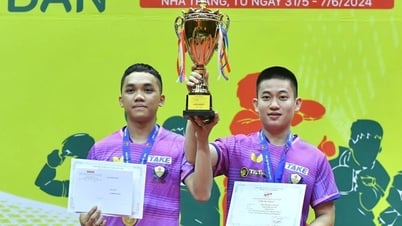


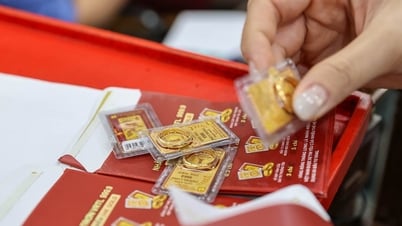
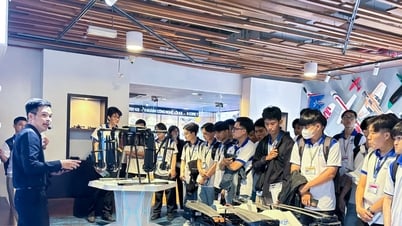
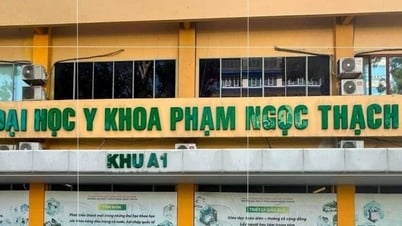









































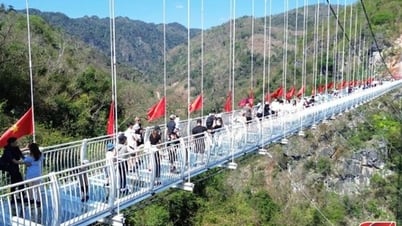



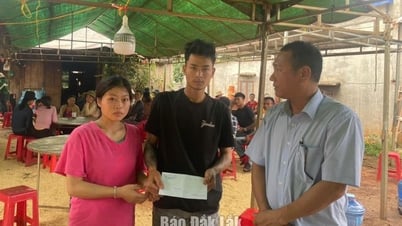

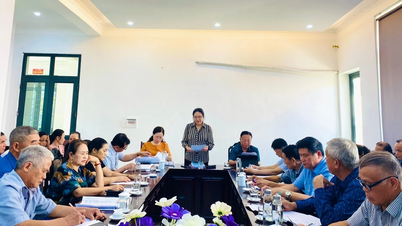

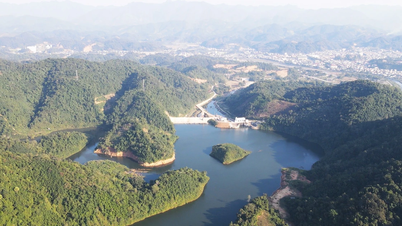


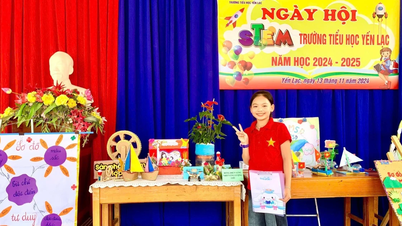











Comment (0)